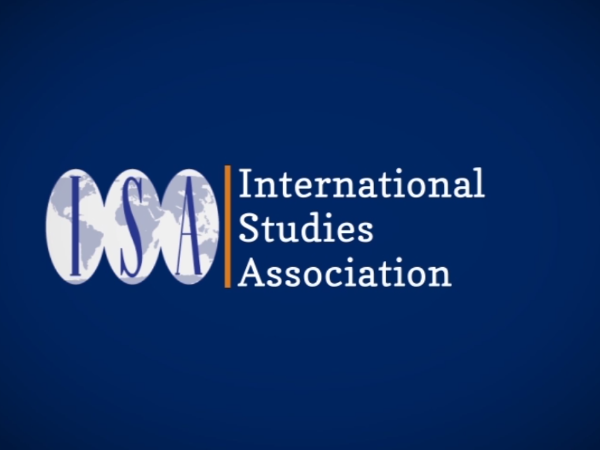

The Internatioinal Studies Association 2024 Annual Convention
Contact: isa@isanet.org
Deadline: Thu, 01 Jun 2023
The International Studies Association's 65th Annual Convention will be held in San Francisco, USA, on 3-6 April 2024, under the theme Putting Relationality at the Centre of International Studies.
Research on international politics explores and is implicated in the (un)making of relationships of all kinds: networks of formal and informal political actors, and the impact these networks have on decision-making; diplomacy and statecraft within and beyond the institutions of global governance; imperial impositions, patriarchal violence and capitalist dispossession; and social and community movements and how these interact and interconnect with, and contest and challenge and reimagine national government, the state, and transnational governance. Beyond those engagements with prominent forms of global political practice, scholars also examine relations of humans with non-human animals, land, and waterways, relations of value and care, and social relations of power and subjectification such as capital, race, religion, sexuality and gender.
How can a focus on relations and relationality reinvigorate the study and practice of the international and the political, and the commitments and embodiment of the international politics scholar? Indigenous, Decolonial, Black, Intersectional, Abolitionist, Queer and Marxist Feminist lineages of thought on, and as, relationality offer a fundamental onto-epistemological challenge to a discipline that has at times focused narrowly on actors in a vacuum, and been bound by hetero-patriarchal frameworks of modern/colonial state governance and law (see below for a list of readings that have inspired our thinking on, and with, these traditions). They challenge taken-for-granted assumptions about the nature of knowledge, of becoming international politics scholars, of the objects and subjects of our scholarship, and of the processes and relations that our discipline might have responsibilities to honour and engage with.
Relational thinking requires recognising how human and non-human entities and things come into being through relations. These could be relations of consensus, recognition and mutuality, or relations of violence, violation and dissonance, or complex combinations of these. A focus on relations, rather than entities or things, encourages us to consider how these relations are developed, imposed, nurtured, ruptured, restored, remembered and/or revitalised.
Our work is enabled or disenabled by the relations around us. This can bring scholarly attention to the communities that sustain us, by the humans and non-humans whose wisdoms nourishes us, and the complexities in nurturing relations and communities of care. Shifting our focus to examine relations at local, national, international, and transnational levels reveals how everyday practices of carelessness, dispossession and erasure are reproduced, as well as ways that care and community foster, enable, reflect, and hold the possibility of transforming politics. A focus on relations also makes visible the ongoing differential impacts of Covid-19 in this not ‘post-pandemic’ moment and highlights their impact on the (im)possibilities of pluralising our discipline. Such a focus can also bring sickness, vulnerability and disability to the fore of our reflections and analyses as sites of wisdom, not weakness.
This conference aims to create space for ISA members to explore what happens when we put relations and relationality at the centre of our thinking about international politics. We encourage participants to think about how centring relations helps us think about how these relations are sustained or ruptured, generated or denied, and with what effects. Themes and topics to explore include:
- How does attending to power as a relation challenge conventional international relations thinking?
- How does a relational approach to international studies shift assumptions about what ‘counts,’ what gets counted, and who does the counting within ‘our’ discipline?
- What do intellectual-political traditions historically on the margins of international studies, such as Indigenous, Decolonial, Marxist Feminist, Black, Queer, and Abolitionist theories, suggest about the concept of relationality and the complexities of care? How might these theoretical traditions reshape and challenge theory, disciplinarity, and the figure of the theorist?
- How might we unsettle linear, universal disciplinary histories through a focus on relationality?
- How do relational approaches to international studies travel and translate between Global North and South?
- What does a focus on relations and relationality tell us about the complexities of care, sickness and disability, and creating communities of care in and beyond international politics?
- How can a focus on relations and relationality deepen and complexify our understanding of power and our responsibilities to unsettle unequal and imperial power relations?
- How does a focus on relations and relationality make visible the relations of care that enable the (re)production of international studies and politics of disciplinarity and institutionality?
- How do social movements, civil society organisations and populist movements practice and/or fragment community? In what ways do governance institutions foster and/or inhibit senses and enactments of community?
- What kinds of communities are salient in international studies? How do pedagogies of care and community illuminate understandings of the international and the political?
- How might concepts of care and community resonate with studies of diplomacy and statecraft?
- How might feminist theories of care resonate with peace and conflict studies, particularly those attentive to post-conflict reconstruction and recovery?
- How does a focus on relations and care bring bodies into focus? How can this focus shed light on the meanings of illness and recovery, especially in the shadow of wars, pandemics, and other ongoing losses?
- How might we unsettle exclusionary disciplinary practices and structures through a commitment to care?
- How can we cultivate coalitions and solidarities within and beyond international studies scholarship and activism?
- How might relational thinking envision the past-present-futures of international studies?











